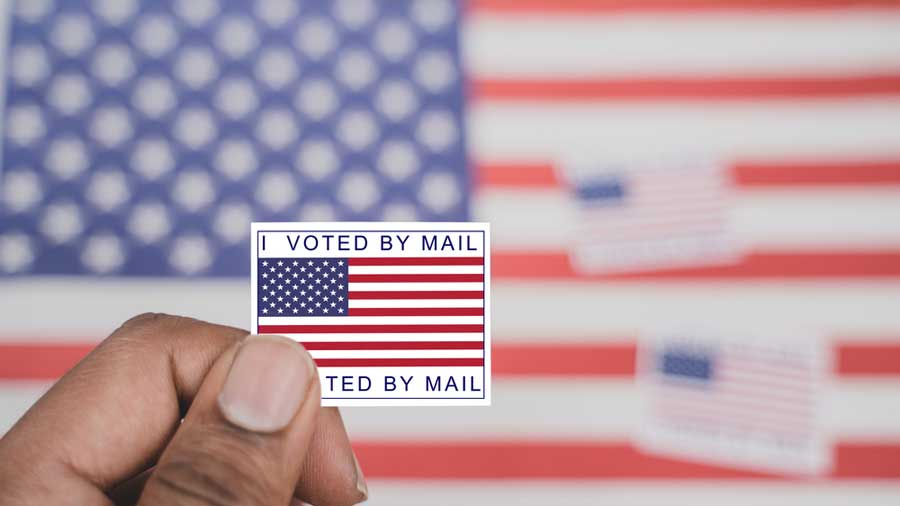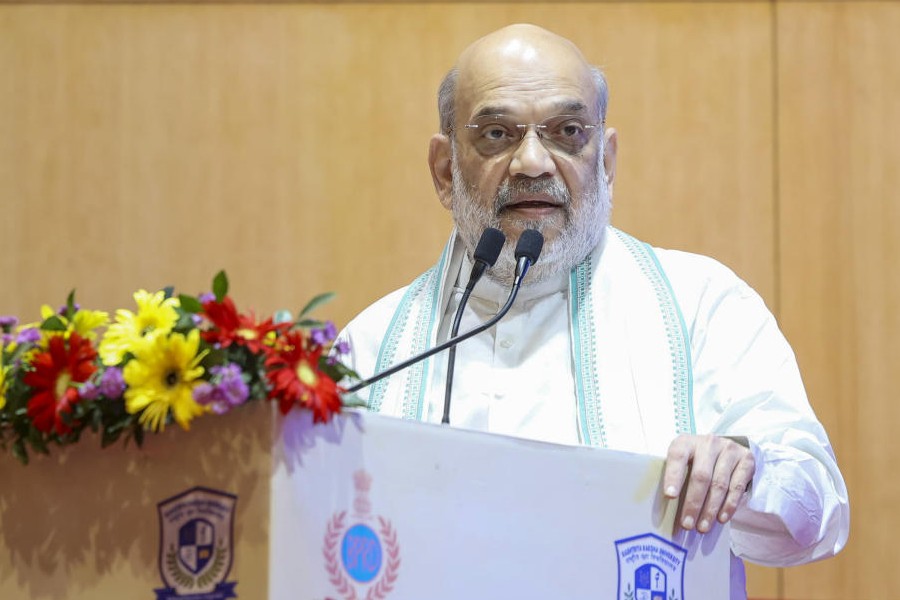Voters returned nearly 64 million mail-in ballots before Election Day, a pandemic-driven record that is certain to make for a more complicated vote count this year but could also reshape American elections for years to come.
The counting is underway, but there are major differences among battleground states in how that plays out, and potential legal challenges — particularly from the Trump campaign — are likely to further complicate the process.
Some battleground states, like North Carolina, have been processing ballots for weeks.
Elections officials there expect at least 97 per cent of votes to be counted on Tuesday night. But in one of the most hotly contested states, Pennsylvania, the Trump campaign and Republican allies blocked counties from processing votes ahead of the polls.
Mail-in balloting this year doubled from 2016, and for many voters, the shift has been a revelation.
In Atlanta, Frank Casaceli ran up the stairs of a library on the Georgia State University campus on Sunday, placed his absentee ballot in an official county drop box, and quickly headed back to his parked car. At age 42, it was the first time he had ever voted.
“Usually I work 12 hours a day,” Casaceli said, explaining why he had skipped out on the polls for the past two decades. The convenience factor, driving to the drop box on a traffic-free Sunday afternoon and skipping the lines at polls, had removed a major impediment to his participation.
Casaceli voted for President Trump, who has spent much of the 2020 campaign admonishing people like him, who cast their mail-in ballots in the closing days of the election. Trump returned to the issue on Monday at a rally in Fayetteville, North Carolina.
“Get your ballots in and have them in long before the third, and have them counted before the third,” he said, while assailing a recent Supreme Court ruling that rebuffed his campaign’s attempt to curtail the acceptance of Pennsylvania ballots that are postmarked by Election Day but arrive in election offices up to three days later.
“What a ruling, what a horrible thing that they’ve done,” he said of the court. “Do you know that puts our country in danger? Do you know what can happen during that long period of time?” he said, and then, answering his own question, said “cheating can happen like you’ve never seen”.
The President’s persistent claims of a rigged election, however, are baseless. But with more Democrats voting by mail than Republicans, Trump has tried to sow doubts about the process and the validity of those ballots.
“I don’t care how hard Donald Trump tries, there’s nothing, nothing he can do to stop the people of this nation from voting, no matter how he tries,” former Vice-President Joseph R. Biden Jr. said at a rally in Pittsburgh. “Trump doesn’t want y’all voting. He doesn’t want Americans voting. He thinks only wealthy folks should vote. And when America votes, though, America will be heard.”
Five states were already largely voting by mail in the years before the pandemic: Colorado, Washington, Oregon, Hawaii and Utah. Now the rest of the country appears to be moving in that direction as well, notwithstanding the President’s stance, concerns that absentee votes have a higher rejection rate than in-person votes, or stories of ballots that were never delivered or went astray.
New York Times News Service











